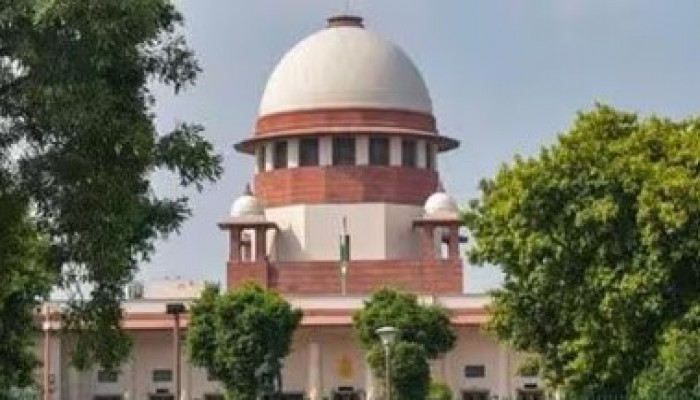SC declares electoral bonds scheme ‘unconstitutional’, strikes down poll funding system
- In Reports
- 02:55 PM, Feb 15, 2024
- Myind Staff
In a unanimous verdict on a batch of pleas challenging the legal validity of the Centre’s scheme allowing anonymous funding to political parties, the Supreme Court declared the changes made in the law to introduce the electoral bonds scheme as unconstitutional.
In a directive issued by a five-judge Constitution Bench presided over by Chief Justice of India D Y Chandrachud, it was ordered that "the issuing bank shall immediately cease the issuance of electoral bonds."
Additionally, SBI was instructed to "provide details of the electoral bonds purchased from the interim order of the court dated April 12, 2019, until the present date to the Election Commission of India ECI."
The bench declared that "Section 29(c)(1) of the Representation of People Act, 1951, as amended by Section 137 of the Finance Act 2017, Section 182(3) of the Companies Act as amended by Section 154 of the Finance Act, 2017, and Section 13A(b) as amended by the Finance Act of 2017 are in violation of Article 19(1)(a) and are hence unconstitutional."
The bench, which also included Justices Sanjiv Khanna, B R Gavai, J B Pardiwala, and Manoj Misra, asserted that the removal of the proviso to Section 182(1) of the Companies Act, allowing unrestricted corporate funding to political parties, is arbitrary and contravenes Article 14.
The bench explained that companies hold greater influence over elections due to their ability to contribute significantly larger sums compared to individuals. While individual contributions often stem from personal affiliations, corporate contributions are primarily transactional, aimed at securing benefits. Therefore, treating political contributions by companies and individuals equally under Section 182 was deemed arbitrary by the bench.
The apex court noted that before the amendment to Section 182, companies were restricted to contributing a percentage of their net aggregate profits. This classification between profit-making and loss-making companies was based on the principle that profitable companies were more likely to contribute for political favors rather than tax benefits.
The court highlighted that the amendment to Section 182 of the Finance Act of 2017 failed to distinguish between profit-making and loss-making companies in terms of political contributions, leading to manifest arbitrariness.
It emphasized that the aim of Section 182 is to combat corruption and electoral financing, with the amendment allowing unrestricted corporate influence in elections, contrary to the principles of free and fair elections and political equality.
The court directed the SBI to provide details of political parties receiving contributions through electoral bonds since April 12, 2019, to the Election Commission. This includes the date of purchase, purchaser's name, bond denomination, and details of encashed bonds. SBI must submit this information within three weeks of the judgment, by March 6, 2024.
Image source: Hindustan Times







Comments